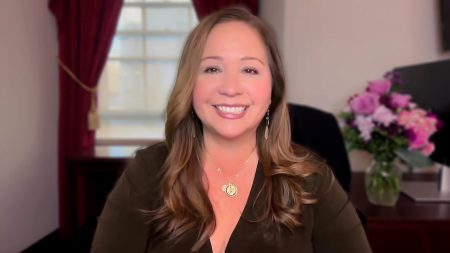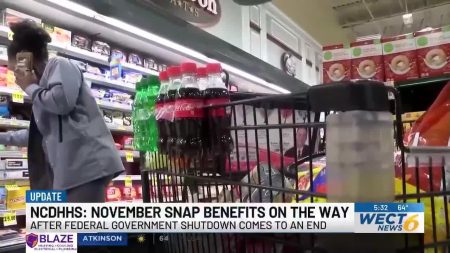Who Were Those Masked Men/Women?
Lawful and Unlawful Masks, Immigration Law, the School Voucher Program, and Vetoes by Gov. Josh Stein.

Photo: Tim Barnwell
Legislative News by Nelda Holder –
Remember all the uproar about requirements to wear masks in public during the most active governmental management of trying to control the Covid epidemic?
And how the NC General Assembly produced a law (HB 237) that spelled out the restrictions (and non-restrictions) regarding when and where masks were lawful and unlawful in the state.
Here’s the legislative opener. It’s amusing:
Session Law 2024-16: An act to modify the Physical Health and Safety of Others Exemption to certain laws prohibiting wearing masks; to enhance punishment if the defendant was wearing a mask or other clothing or device to conceal or attempt to conceal the defendant’s identity [emphasis added]. . . .
Original exemptions included:
… wearing traditional holiday costumes in season; using masks in theatrical productions (including Mardi Gras celebrations); civil defense drills; persons or ‘members elect of a society, order or organization … wearing or using any manner of costume, paraphernalia, disguise, facial makeup, hood’ … on any public or private street, road, way or property … provided permission shall have been first obtained … from the governing body of the municipality in which the same takes place.
I think about this when I see pictures of masked federal ICE agents on our streets now—and wonder where the uproar has gone in our formerly anti-mask legislature.
According to a July 9, 2025 report from WUNC Public Radio’s Julian Berger, new data indicates a 160% increase in daily arrests across the state (compared to 2024). And data from the Deportation Data Project since Donald Trump began his second term as president indicates ICE has arrested nearly 1,600 people in our state—a quarter of whom were “tied to operations conducted in the Charlotte region.”
Berger further reports that nearly “half of those arrested had no prior criminal convictions, and 20% were arrested solely for being undocumented.” The majority were from Mexico, Honduras, Guatemala, Nicaragua, and El Salvador. By early June, nearly one thousand had been deported.
From an interview with immigration attorney Becca O’Neill of the Carolina Migrant Network, the report notes: “They sort of promote this narrative that all immigrants are criminals. The intent—and it’s been pretty successful—is to criminalize immigrant communities.” Immigration attorneys are struggling, she added, to keep up with increases in arrests and provide access to due process.
All that, and no new law forbidding masks over the faces of the arresting ICE agents. At least neighbor Virginia’s two US senators would change that. “They should be identified,” Virginia Sen. Tim Kaine (D) declared. “Because otherwise, is this a law enforcement person or is this a kidnapper?” He and Sen. Mark Warner (D) have that requirement in their Immigration Enforcement Identification Act. According to a report by NBC4 Washington, the bill would require identification of the law enforcement agency agents work for, but not require agents to display their names.
Individual states and an analysis of their laws—and other pertinent immigration information—can be found by map at www.ilrc.org/state-map-immigration-enforcement-2024.
The map and narrative are made available through the Immigrant Legal Resource Center, which notes that although “immigration law is federal law administered by federal agencies, it is state laws and state-powered machinery that drive immigration enforcement.”
Meanwhile, Back at our Statehouse
The NC school voucher program grew hungrier during this session of the legislature. And a majority of the NCGA members seem fond of them, so more and more money has been plowed into expanding the program—even while that money has been underutilized. Just how, you may ask, can funding expand for an underutilized program that has questionable guidelines compared to standard public school system? Well, among other things, you require no income limits on participating families so that the voucher program pays for private schooling without any proven family financial need.
According to the nonprofit organization Public Schools First NC, this has happened although the program has had a history of underutilization since its start in 2014-15. Initially designed to aid low-income families wishing to opt out of local public schools, the income eligibility was dropped last school year and now there are no income-eligibility requirements. The current budget for “Opportunity Scholarships” allow state funding of up to 100% of the average NC per pupil allocation—paid directly to the private school.
The budget for voucher funding will grow by millions so that—according to Public Schools First, by 2031-32 more than $500 million will be allocated to vouchers each year, and “nearly $5 billion will be spent on private school vouchers by 2032-33.”
Again, according to Public Schools First, with the lag in applications for this funding, a marketing budget of $500,000 per year was designated in the 2021-23 budget. And in 2023 this budget was increased to $1,000,000 per year.
State taxpayers, who are obligated to fund a public school system comprising 115 members (100 county and 15 city, each overseen by a locally elected school board)—are now on the tax hook for a million dollars a year simply to market voucher expenditures to send children to private schools. That, of course, does not begin to account for the costs of private tuition, which will now go to students regardless of the ability (or lack thereof) to pay that tuition.
Want to have some fun? Check out The History of Education in North Carolina (1776-1993) by former State Superintendent Bob Etheridge (files.eric.ed.gov/fulltext/ED369713.pdf). You might appreciate the public schools we have even more.
On Their Way Out the Door . . .
The 2025 Regular Session of the General Assembly of North Carolina adjourned on Thursday, July 31, 2025, set to reconvene on Tuesday, August 26 at 12 noon. There is a finite list of what will be eligible to be considered when the August 26 session gets underway, including the following:
- Filling of certain vacancies of positions; actions on gubernatorial nominations/appointments
- Actions related to litigation
- Matters relating to elections laws (including bills concerning districts for Congressional, State House, State Senate, judicial, municipal, county, and other elected officials)
- Impeachment pursuant to Article IV of the NC Constitution
- Simple resolutions of organizational matters
- Adoption of conference reports for bills—including bills providing for disaster recovery
- Joint resolution amending or adjourning the 2025 regular session
Just before leaving, the Republican-led legislature took the time to vote on—with resultant overrides—vetoes by Democratic Gov. Josh Stein. Here are some of the state’s newest laws:
HB 805/SL 2025-84 (Prevent Sexual Exploitation/Women and Minors): Built around President Donald Trump’s Executive Order titled “Defending Women from Gender Ideology Extremism and Restoring Biological Truth to the Federal Government,” this bill codifies “official recognition of two sexes in all administrative rules, regulations, or public policies” of the state. (Yep—that simple. Never mind the complications in real life.)
HB 318/SL 2025-85 (The Criminal Illegal Alien Enforcement Act): Modifies eligibility for release and requires notification of release to Immigration and Customs Enforcement when a prisoner is subject to an immigration detainer and administrative warrant. Changes involve notification requirements for Immigration and Customs Enforcement of date and time of prisoner release and establishes conditions for attempting to determine if defendant is a legal resident or citizen of the United States.
HB 193/SL 2025-81 (Firearm Law Revisions): Legalizes certain employees and volunteers at nonpublic schools to carry certain weapons on educational property with certain school approvals, provided the location is both a school and a place of religious worship and person carrying is attending worship or other sacerdotal functions.
Then on their way out the door, the legislators were reminded by Stein that the pending state budget was due on July 1—the start of the state’s new fiscal year. But there’s a law to save them from their tardiness.
G.S.143C-5-4 assures funding according to the following outline: “Unless otherwise provided by law, the Director of the Budget may continue to allocate funds from all funds for expenditure by State departments, institutions, and agencies at a level not to exceed the level of those funds in the recurring certified budget for the prior fiscal year.
“If the Director of the Budget finds that projected revenues for the fiscal year will not support expenditures at the level of recurring expenditures for the prior fiscal year, the Director of the Budget shall allot funds at a lower level. In making these allocations, the Director of the Budget shall ensure the prompt payment of the principal and interest on bonds and notes of the State according to their terms. . . .”
House Bill 87
Governor Stein made the following statement on vetoing House Bill 87:
“School choice is good for students and parents, and I have long supported magnet and accountable charter schools because public schools open doors of opportunity for kids in every county of the state. Congress and the Administration should strengthen our public schools, not hollow them out.
“Cutting public education funding by billions of dollars while providing billions in tax giveaways to wealthy parents already sending their kids to private schools is the wrong choice. However, I see opportunities for the federal scholarship donation tax credit program to benefit North Carolina’s public school kids.
“Once the federal government issues sound guidance, I intend to opt North Carolina in so we can invest in the public school students most in need of after school programs, tutoring, and other resources. Therefore, HB 87 is unnecessary, and I veto it.”
Nelda Holder is the author of The Thirteenth Juror – Ferguson: A Personal Look at the Grand Jury Transcripts.







